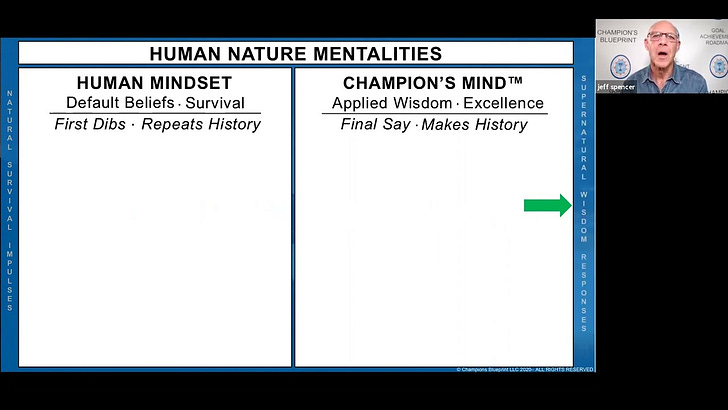The first section of Dan Nicholson’s WSJ best-seller “Rigging The Game” is “Three Reasons Why Some People Always Win (While Others Don’t).”
Hidden in the first 15 pages are a handful of “Certainty Tools”. These tools are often skipped or discounted due to their simplicity. But the impact that follows studying, understanding, and revisiting them is profound.
Even if you’ve read the book, you’ll want to revisit these concepts frequently:
Identify Your Biases
Play Your Own Game
Carry a Toolkit
Identify Your Biases:
As Dan explains in Rigging The Game, humans come pre-wired with biases. These biases make it difficult to identify when we are setting ourselves up for defeat. In Thinking Fast and Slow, Daniel Kahneman explains the following scenario
Scenario A:
A woman has purchased two tickets to the theater. When she opens her wallet she discovers that the tickets are missing. $20 tickets are still available for sale at the box office, will she buy tickets to see the play?
Scenario B: A woman goes to the theater, intending to buy two tickets that are $20 each. When she gets to the theater she discovers that the $40 she had brought for the tickets has fallen out of her pocket. Tickets are $20 each and she can still buy two more with a debit or credit card.
When asked what they would do, most people agree that in the first scenario, they would go home and not see the play. In the second scenario, most say they would buy the tickets and see the play.
In either scenario, the question is the same: "Would you pay $80 to see this movie?". Two identical scenarios, two different outcomes. What's going on?
For starters, in one of the scenarios, people would be violating their own economic principles. It's either worth $80 to see the movie or it's not. The way the problem presented itself caused a distortion.
That's not all.
As Dan reminds us, there is another bias called the GI Joe Bias. The GI Joe Bias states that being aware of biases does not make us immune to them.
If you want to stop violating your own principle, you have to overcome biases. Knowing about them is not enough. It takes practice.
Certainty Tools, Overcoming Biases
The Human vs The Champion’s Mind
The first step to overcoming biases is understanding that you have two systems. The slow, deliberate mind and the much faster, more impulsive mindset. Daniel Kahneman refers to them as System 2 and System 1, respectively.
Dr. Jeff Spencer has a similar concept in his “Human Mentalities” framework. The slow, deliberate “Champion’s Mind” and the impulsive, reactive “Humand Mindset” that's hard-wired into us.
You can see Dr. Jeff Spencer explain how to discern between the two and tap into the Champions Mind here:
»Download your own copy of “Human Mentalities” Here.
Cognitive Distortions and Unhelpful Thinking Styles
Cognitive distortions are biases and irrational thought patterns that feel unbiased and rational.
Examples include all-or-nothing thinking, overgeneralization, and filtering. Below is a 5-page document with the most common ones. We recommend printing it off and hanging the middle two pages somewhere conspicuous. Pay attention to the unhelpful thinking styles that you are the most susceptible to. It'll help you determine where to start building systems for yourself.
»Download Unhelpful Thinking Styles
Certainty Tools, Play Your Own Game
We live in a copycat world. Social media has made it easier than ever to fall into the “comparison” game. As Nic Peterson says in his book Bumpers:
“You Can’t Win A Race You Don’t Want To Be In”.
Repeat winners keep winning because they know themselves. They're clear on their preferences, and priorities, and play their own game.
Below is an exclusive video with Dan Nicholson and his mentor Randy Massengale. Randy was senior advisor to Bill Gates in the 1990s. His specialty is showing you how to “Play Your Game”.
» Access “Play Your Game” training and resources
Certainty Tools, The Toolkit
The Certainty OS toolkit is far too robust to squeeze into a single post. We will be breaking it down into chunks, so be sure to subscribe if you don’t want to miss it.
The fastest way to master the toolkit and personalize it to your unique disposition is by enrolling in a CCA cohort. If cost is prohibitive, pick up Rigging The Game or head over to the free resources found in the “Certainty Tools” Tabs. Apply what you learn and maybe we will see you in a future cohort.
Enrollment for the next CCA cohort opens in a couple of weeks. Can’t wait to see the next cohort of extraordinary leaders come into the Certainty U world!
Play Your Game, Certainty U




